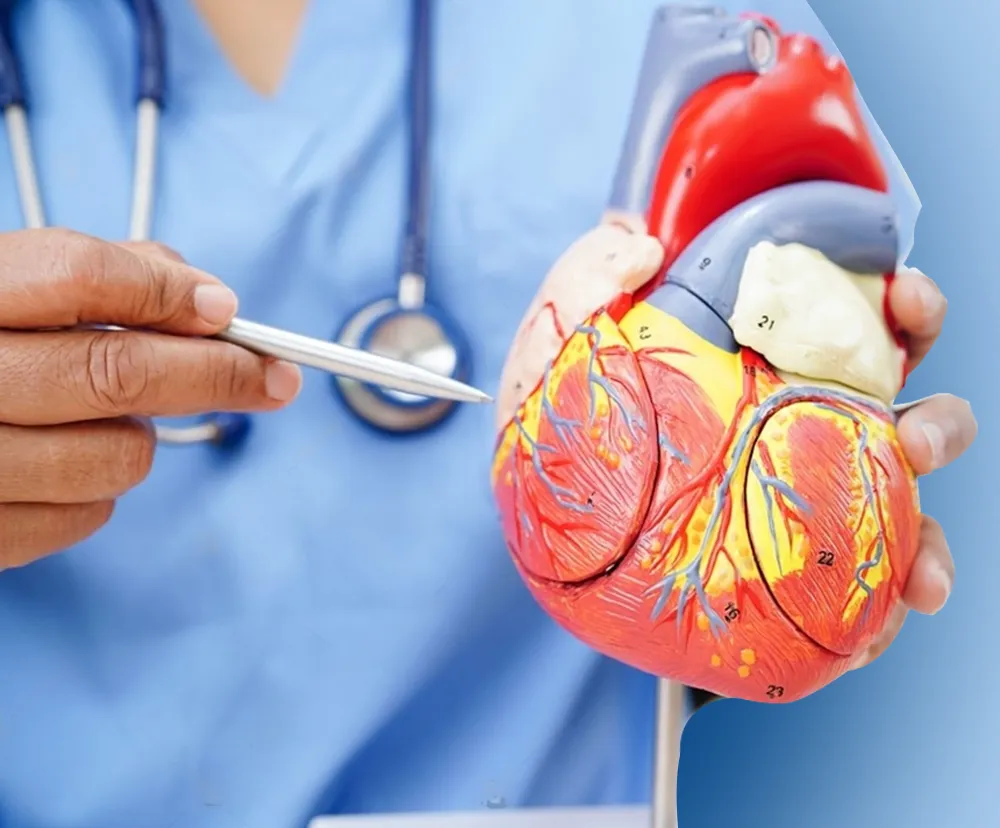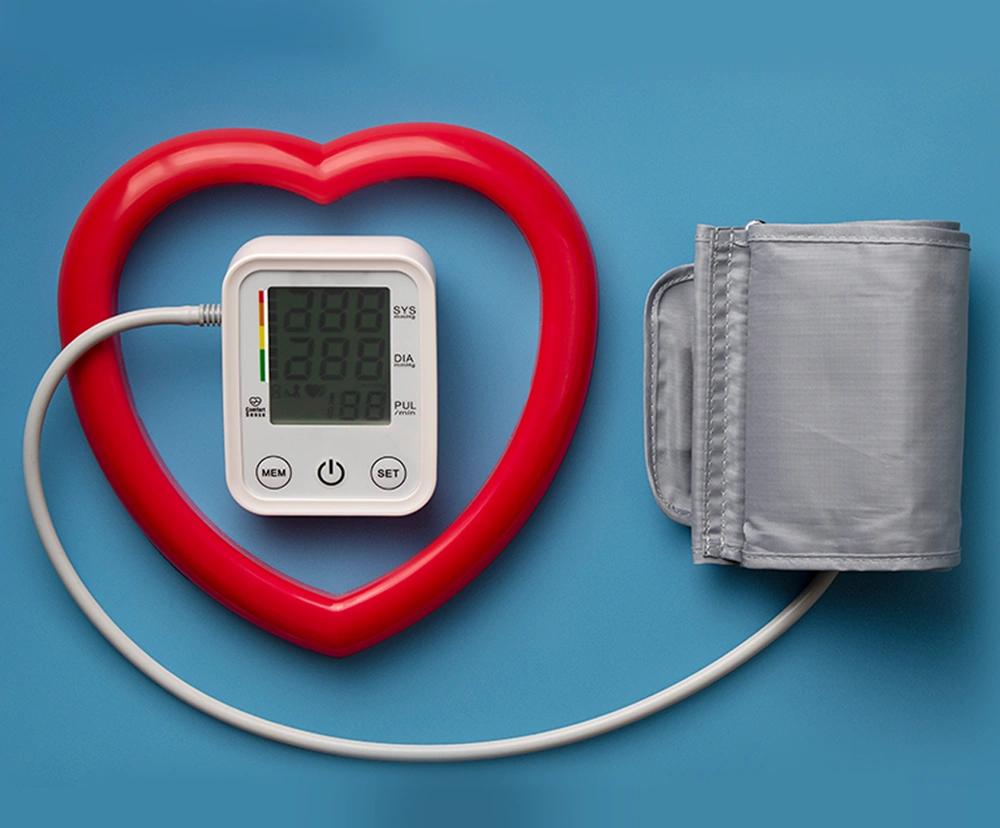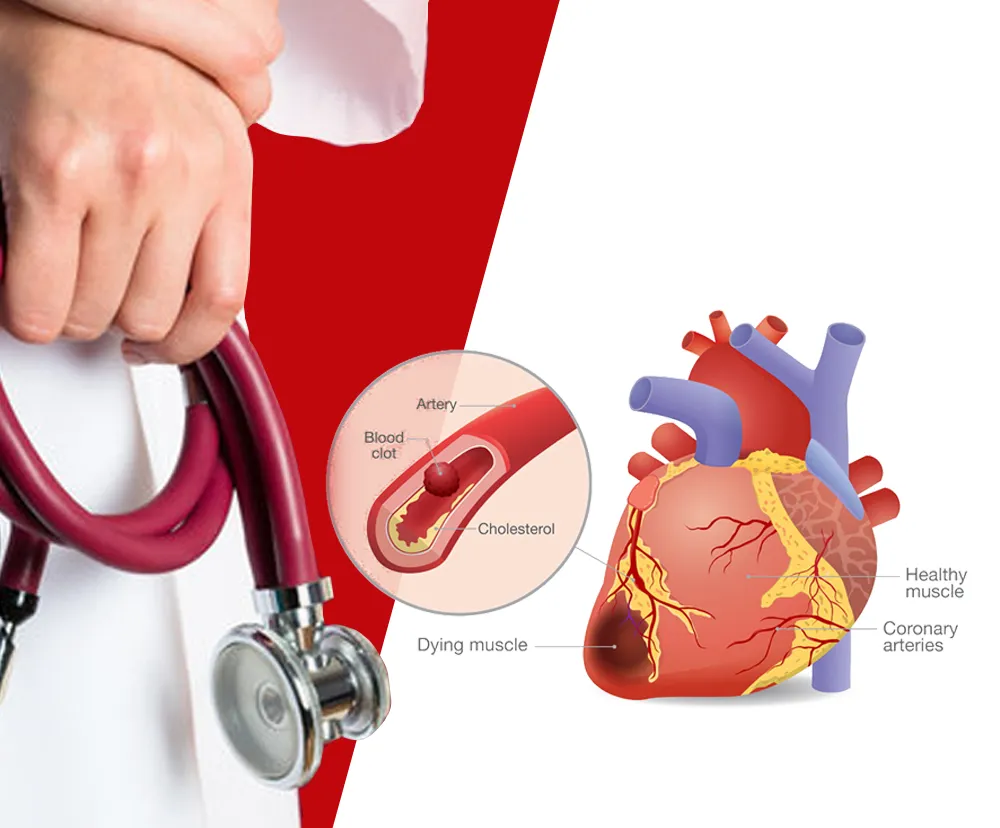Understanding Heart Attack Causes Through Advanced Genetic Testing
Understanding Heart Attack Causes Through Advanced Genetic Testing
- What is the cause of heart attack ?
- What are the common risk factors that increase the chances of getting a heart attack?
- How does plaque formation result in heart attacks ?
- What is the cause of heart attack at young age?
- What are the causes of heart attack in women ?
- Risk factors that are higher in women when compared with men
- What are the causes of silent heart attack ?
- Causes of silent heart attack
- Genetic testing and the ability to detect conditions
- How is genetic testing for heart attack carried out?
Introduction
Did you known that one in ten people in cities in India, have heart ailments? Yes, prevalence is as high as 13% in urban areas. There is hope however, as statistics also state that 90% of heart attacks can be prevented with timely diagnosis and the right treatment. The question is, is it possible for you to learn before a heart attack occurs that you may get one? Yes, certain causes of heart attack can be predicted through genetic testing. Let’s step back to see one of the most famous quotes of medical science by Hippocrates, the father of modern medicine. “It is more important to know what sort of person has a disease than to know what sort of disease a person has.” Treatment is effective after clearly understanding heart attack causes; here is a quick look at the major reasons for heart attacks.
What is the cause of heart attack ?
Also known as myocardial infarctions, the cause of heart attack is blockage of the flow of oxygen-rich blood to your heart muscle. Left untreated, this causes either damage to the affected heart muscle or death of the heart muscle. This is the main cause of heart attack, and there are multiple underlying factors or health conditions that build up to this stage. In South India, it is now possible to check for underlying health conditions, through genetic testing. The following list of conditions help in understanding heart attack causes better.
- Coronary Artery Disease – Commonly known as CAD, this is identified as the most common cause of heart attacks. This is attributed to a narrowing or blockage of the coronary arteries that carry blood to the heart muscle. This narrowing or blockage is due to a buildup of cholesterol and plaque. This buildup is known as atherosclerosis. Plaque refers to substances that contain the following:
- Cholesterol – High levels of LDL, also known as “bad” cholesterol cause formation of plaque.
- Fatty deposits – This refers to accumulation of lipid which results in the thickening of artery walls.
- Calcium – Build-up of calcium in the plaque, causes hardening and increased narrowing of the arteries.
- Cellular waste – Plaque also often contains waste from cells.
- Fibrin – This is clotting material released in the body to repair damaged vessel walls.
- Plaque rupture – The plaque in the coronary artery can possibly rupture, causing the formation of a blood clot. This blood clot can ultimately obstruct the flow of blood to the heart muscle, causing a heart attack.
- Coronary artery spasm – This refers to a temporary, highly intense spasm of a coronary artery. This can either decrease the flow of blood or stop the flow of blood to a section of the heart muscle. This is possible in arteries that are either free from plaque buildup and arteries that are affected by atherosclerosis. While the reasons are not fully clear, it is linked to drug abuse, stress, and lifestyle factors like smoking.
What are the common risk factors that increase the chances of getting a heart attack?
There are multiple risk factors that increase your possibility of having a heart attack. The following conditions help in understanding heart attack causes. In south India, there are advanced genetic testing facilities to identify risk factors an the possibility of a heart attack in the future.
- High blood pressure – Medically known as hypertension, this increase the strain on the heart and arteries.
- High cholesterol levels – When there are high levels of low-density lipoprotein cholesterol, there is an increased risk of atherosclerosis.
- Smoking – This causes significant damage to the lining of arteries. This also makes it conducive for the formation of blood clots.
- Diabetes – High blood sugar levels cause damage to the blood vessels, and contribute to high risk of heart disease.
- Obesity – This is a condition that is generally linked to high blood pressure, diabetes, and high cholesterol. All these three causative factors increase risk of heart attack.
- Sedentary lifestyle – Inadequate physical activity can lead to obesity and exposure to other risk factors.
- Poor diet – A diet that is rich or high in saturated fats, trans fats, cholesterol, and sodium exposes the person to risk of heart disease.
- Family history – A major factor of heart disease is genetic predisposition.
- Age and gender – Older men and women are at higher risk of the condition. Among genders, men are more at risk; and this is at an earlier age compared to women.
- Stress: Another reason that most people fail to notice is the effect of chronic stress. This can increase the risk of heart attack through higher heart beat rate and blood pressure.
- Alcohol – People who over indulge in alcohol may end up with higher blood pressure levels. This can lead to other factors that increase risk of heart disease.
How does plaque formation result in heart attacks ?
The formation of plaque results in possible heart attack due to the following conditions:
- Narrowing of arteries: When plaque builds up, it cause a narrowing of the coronary arteries. This reduces the flow of oxygen-rich blood to the heart. This results in the person experiencing chest pain during some physical activity.
- Plaque rupture: The built up plaque can rupture, and this ends up as a blood clot. When the body tries to heal, it could possible fully block the artery.
What is the cause of heart attack at young age?
There are many reasons for heart attack at a young age, and this makes it necessary for timely screening and treatment. The known average age of heart attacks in India is 50 for men and 55 for women. However, the Indian Heart Association clarifies that 50% of these attacks are in men below the age of 50, and 25% below the age of 40.
This effectively means that the younger generation is prone to heart attacks. This is unlike the previously held belief that heart attacks are only experienced by the older generation. Let’s look at the conditions below for understanding heart attack causes in young people. If you are apprehensive of risks of a heart attack, there are advanced genetic testing options available in south India to identify risks.
Genetic predisposition
- Familial hypercholesterolemia – This refers to inherited condition where young people have very high levels of LDL cholesterol. This puts the person at risk of early-onset coronary artery disease.
- Genetic mutations – Certain genetic mutations impact the way the body works. For example, lipid metabolism, blood clotting, and regulation of blood pressure change with certain mutations.
Lifestyle Factors
- Smoking – This is a serious risk factor for heart disease, contributing to atherosclerosis.
- Substance abuse – Drugs and substances such as cocaine, amphetamines, etc., are known to increase risk. Coronary artery spasm, increased heart rate, and high blood pressure, are possible outcomes of abuse. This in turn can result in risk of heart attacks.
- Unhealthy diet – A diet that is rich or high in saturated fats, trans fats, and cholesterol can result in plaque formation.
Medical conditions
- Diabetes – Type 1 and type 2 diabetes.
- Hypertension.
- Obesity.
Inflammatory conditions
- Autoimmune diseases – Certain conditions like lupus and rheumatoid arthritis put young people at increased risk. This includes atherosclerosis and heart attacks as a result of chronic inflammation.
- Infections – Specific viral or bacterial infections are known to bring about inflammation of the heart or blood vessels. This can, in turn result in cardiovascular events.
Physical stress
- Extreme activity – When there is intense physical activity undertaken suddenly, there is a risk of heart attack. This is especially among people with underlying heart conditions.
- Severe emotional stress – Stress cardiomyopathy refers to severe emotional stress. Also known as broken heart syndrome, this condition is similar to that of a heart attack.
Congenital heart defects
- Certain structural heart abnormalities at birth can increase the risk of heart attacks in young people.
Premature atherosclerosis
- This is possible in young individuals due to many reasons. This includes genetic factors, metabolic disorders, or lifestyle. These can contribute to premature atherosclerosis, resulting in heart attacks.
Some of the causes of heart attack in women are common to both men and women, while some are more specific to women. Conditions that are specific or more prevalent among women include the following. This will help in understanding heart attack causes in women. You can look for possible future risks of heart attack through genetic testing options in Tamilnadu.
- Prinzmetal’s Angina – This refers to temporary spasms in the coronary arteries. This decreases the flow of blood to the heart, resulting in chest pain and possible heart attacks.
- Microvascular disease – Coronary microvascular dysfunction- This refers to a condition where the small vessels in the heart are either damaged or do not function properly. This results in reduced blood flow and is known as small vessel disease.
- Spontaneous coronary artery dissection – Tear in coronary artery – When a tear occurs in the coronary artery wall, blood flows between the different layers of the artery wall. This results in a heart attack and this SCAD is more prevalent in younger women. Unfortunately, this can affect women who do not have any other normal risk factors.
Risk factors in women
As can be seen from the above, certain conditions are specific to women. This is apart from the conditions that are common to both men and women. The following risk factors are specific to women.
Hormones.
- Menopause – A decrease in levels of estrogen post-menopause can increase the risk of heart conditions in women.
- Pregnancy – Certain conditions are related to pregnancy, like preeclampsia, gestational diabetes, and hypertension. This increases the risk of heart disease in women at some later period in life.
Autoimmune conditions – Certain autoimmune diseases like lupus and rheumatoid arthritis are more common among women. These conditions are linked to an increased risk of heart disease.
Mental health – Due to increased depression and anxiety, women are exposed to the risk of heart ailments.
- Diabetes – Women with diabetes are exposed to a higher risk of heart disease.
- Women who smoke are at increased risk of developing heart disease.
What are the causes of silent heart attack ?
The causes for a silent heart attack are mostly similar to that of a typical heart attack. The difference is in the symptoms. A typical heart attack is known as a symptomatic heart attack or recognized myocardial infarction. A silent heart attack is known as a silent myocardial infarction. A typical heart attack has noticeable symptoms like:
- Chest pain.
- Some kind of discomfort.
- Shortness of breath.
- Feelings of nausea.
- Lightheadedness.
- Sweating.
- Pain in upper body – arms, back, neck, or jaw.
A silent heart attack has minimum symptoms and is mostly detected when tests are undertaken. This includes electrocardiogram, or blood tests undertaken for other conditions. Mild symptoms that actually indicate but are difficult to be recognized as a heart attack include:
- Fatigue.
- Shortness of breath.
- Indigestion.
- Discomfort in the chest, back, arms, or jaw.
Causes of silent heart attack
The causes for both types of heart attack are usually similar. The following list of conditions help in understanding heart attack causes and risks and better. If you are in doubt about possible risks of a silent heart attack, avail genetic testing options in Tamilnadu to check for possible causes.
- Coronary artery disease.
- Smoking.
- High blood pressure.
- High cholesterol levels.
- Diabetes.
- Obesity,
- Family history.
People are at higher risk of silent heart attack due to specific factors like diabetes and neuropathy. The reasons are mostly the same, the treatment is also similar. The main difference is in the manner in which symptoms are experienced.
Genetic testing and the ability to detect conditions
Through simple genetic testing, it is possible to uncover the genetic component of risk of heart attacks. This applies to people who are at risk of heart attack at a young age, people at risk of a silent heart attack and women at risk of a heart attack. Genetic testing helps in understanding heart attack causes and risks, through the following:
- Identifying familial genetic conditions.
- Personalized risk assessment.
- Detecting rare genetic variants.
- Family screening.
It is important to note that genetic component of heart attack risk is one of many factors. Testing will help identify these risks. A comprehensive evaluation will help look at other components.
How is genetic testing for heart attack carried out?
Genetic testing involves a few simple steps in sequence to identify genetic variants linked to increased risk of heart disease. The entire process could take days or a few weeks to complete. It begins with an evaluation followed by sample collection, which could be either blood sample or saliva.
The evaluation may require one or two sessions, and the sample collection takes minutes to complete. The collected sample is then sent to a laboratory for analysis. This may take days to complete, depending on the type of tests recommended. The test data is then analysed and interpreted, which could take a few days to conclude. Based on the results, the detected condition is then managed and this includes use of medications, changes in lifestyle and family screening. These tests are an ideal way to detect unknown risks and help you in understanding heart attack causes that may cause a possible attack in the future.
Medically Reviewed by
Dr.Rajasekar Cardiologist
Dr. Rajasekar is a cardiologist in Chennai, with extensive experience in the field. He completed his MBBS from Madurai Kamaraj University, followed by an MD in General Medicine and a DM in Cardiology from The Tamil Nadu Dr. M.G.R. Medical University (TNMGRMU).
Related Blogs :

Why You Need To Start Understanding Cardiovascular Disease
Slide HeadingLorem ipsum dolor sit amet, consectetur adipiscing elit. Ut elit tellus, luctus nec ullamcorper mattis, pulvinar dapibus leo.Click Here Previous Next What is the main information...


Life Saving Tips on how to stop Heart Attack
Introduction How to stop a heart attack in 30 seconds? Why time is of utmost importance? How to stop heart attack if you see signs of it...

Doctor of Pharmacy (Pharm.D) from the University of Delhi Experience : Dr. Srinivasan is an experienced pharmacist with a Doctor of Pharmacy degree from the University of Delhi and over 12 years in the field. She has worked extensively in clinical and community pharmacy settings, focusing on patient care, medication management, and drug safety. Dr. Srinivasan also contributes to health and wellness publications and serves as a consultant for pharmaceutical companies and healthcare organizations. Her expertise spans clinical practice, pharmaceutical writing, and regulatory affairs.



